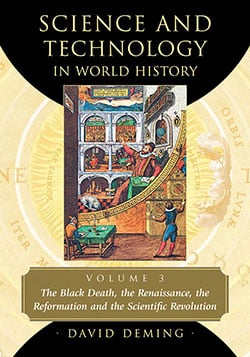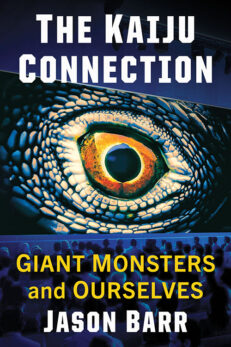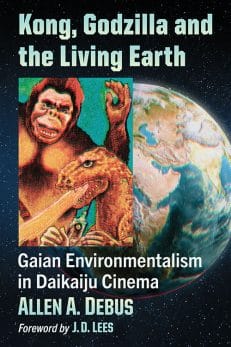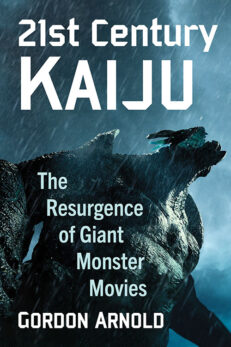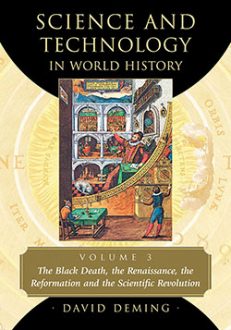Science and Technology in World History, Volume 3
The Black Death, the Renaissance, the Reformation and the Scientific Revolution
$39.95
In stock
About the Book
This installment in a series on science and technology in world history begins in the fourteenth century, explaining the origin and nature of scientific methodology and the relation of science to religion, philosophy, military history, economics and technology. Specific topics covered include the Black Death, the Little Ice Age, the invention of the printing press, Martin Luther and the Reformation, the birth of modern medicine, the Copernican Revolution, Galileo, Kepler, Isaac Newton, and the Scientific Revolution.
About the Author(s)
Bibliographic Details
David Deming
Format: softcover (7 x 10)
Pages: 327
Bibliographic Info: notes, bibliography, index
Copyright Date: 2012
pISBN: 978-0-7864-6172-1
eISBN: 978-0-7864-9086-8
Imprint: McFarland
Table of Contents
Preface 1
1. Famine and Pestilence 3
The Little Ice Age (c. 1300–1860) 3
The Black Death (1348–1350) 5
2. The Witch Mania (c. 1450–1700) 14
Magic, Sorcery and Witchcraft 14
3. The Printing Press (1450) 28
Science, Repeatability and the Printing Press 28
4. A Short History of Censorship 35
Ancient World 35
5. The Renaissance (c. 1350–1650) 43
Humanism and the Revival of Learning 43
Leonardo da Vinci (1452–1519) 48
6. The Reformation 58
The Corruption of the Roman Catholic Church (c. 1000–1500) 58
Martin Luther (1483–1546) 62
7. Birth of Modern Medicine 87
European Medicine in the Middle Ages (c. 600–1500) 87
Paracelsus (1493–1541) 95
The Reform of Anatomy and Physiology 106
8. Educational Reform and Peter Ramus (1515–1572) 113
Scholastic Pedantry 113
9. The Copernican Revolution 127
Nicolaus Copernicus (1473–1543) 127
Tycho Brahe (1546–1601) 140
Johannes Kepler (1571–1630) 146
10. The Scientific Revolution (c. 1543–1687) 158
Galileo Galilei (1564–1642) 158
Francis Bacon (1561–1626) 183
Experimental Philosophy in Seventeenth Century Europe 203
Isaac Newton (1642–1727) 216
Conclusion 259
Chapter Notes 262
Bibliography 299
Index 314

